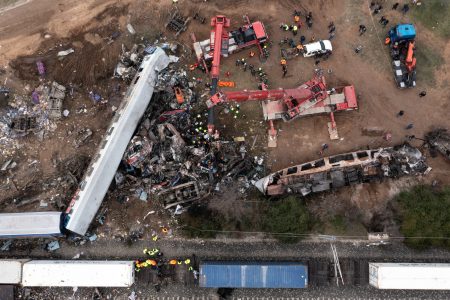The tears from the eyes of our fellow citizens in Mandra, Western Attica, have dried.
There is a heavy lament for those who unjustly lost their lives in the great flood. There is great sorrow for the households that were lost, for the property that was dragged away by the surging waters, and even greater rage over the inability of the state to foresee and act preventively, so as to avert a great disaster.
Many rushed to assign blame to the government and the current leaders of local government.
They most certainly bear responsibility for their mindlessness and lack of prevention. But they are mainly responsible for the grand rhetoric over several decades, and later for the pledges that they indiscriminately made and then forgot the next day.
Yet, if we want to look people in the eye, we are obliged to say that the crime is perpetual, diachronic and often repeated.
All of us, both the state and citizenry, more or less bear our own responsibilities. We disregarded nature, showing contempt for the power and signs that it has exhibited over the ages.
We filled the waterbeds with rubble. We turned the streams into roads. We built illegal constructions everywhere, willy-nilly, without planning, without precautions, and without study and knowledge of extreme natural phenomena, and the disasters that accompany them.
The truth is, there is no one innocent of the blood.
While until now most could invoke their ignorance or other social needs in order to explain away their imbecility and tolerance for illegality, now they can no longer do that.
There have been so many warnings from scientists, and countless frantic efforts of leaders and political groupings around the world, that no one has an alibi.
German Chancellor Angel Merkel recently declared emphatically that, “Climate change is a fateful issue for humanity.”
Let us not cultivate self-delusion. In the coming years, extreme weather conditions will multiply and will become ever more deadly.
The Greek state is exceptionally weak. It lacks developed mechanisms able to manage future natural disasters.
It must urgently acquire them, before it is too late.
For this reason, everyone – and especially officials at all levels, who hasten after the fact to visit the disaster zones with word of consolation – must begin action now, without further delays and reservations.
Climate change is a challenge for the entire world, and an even greater one for Greece, as its terrain has too often been violated in the past.
The national mourning declared by the prime minister will not suffice.
Our times and conditions demand other approaches, ones that are more substantive, long-term, and radical.





